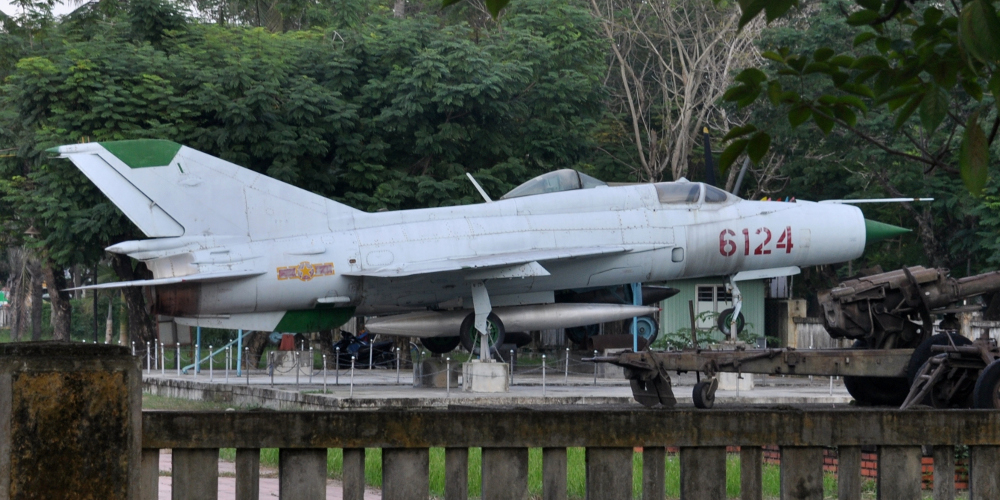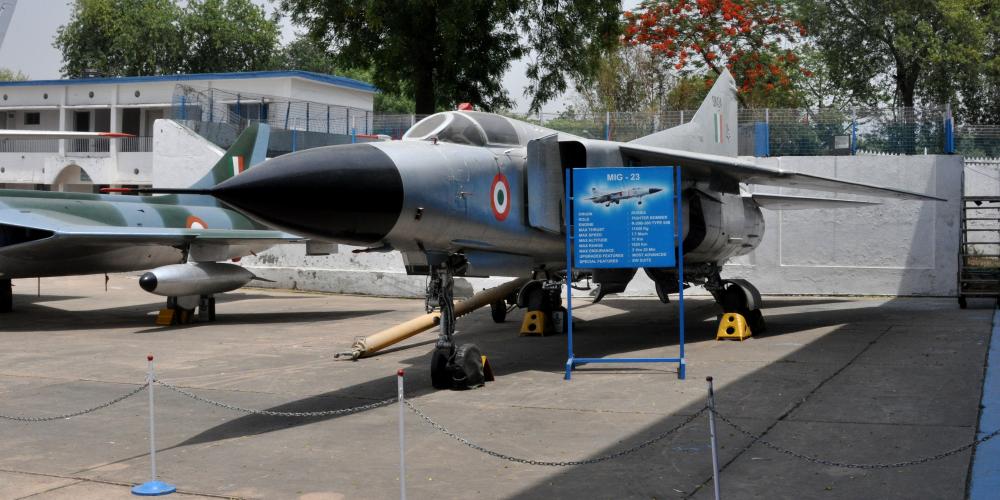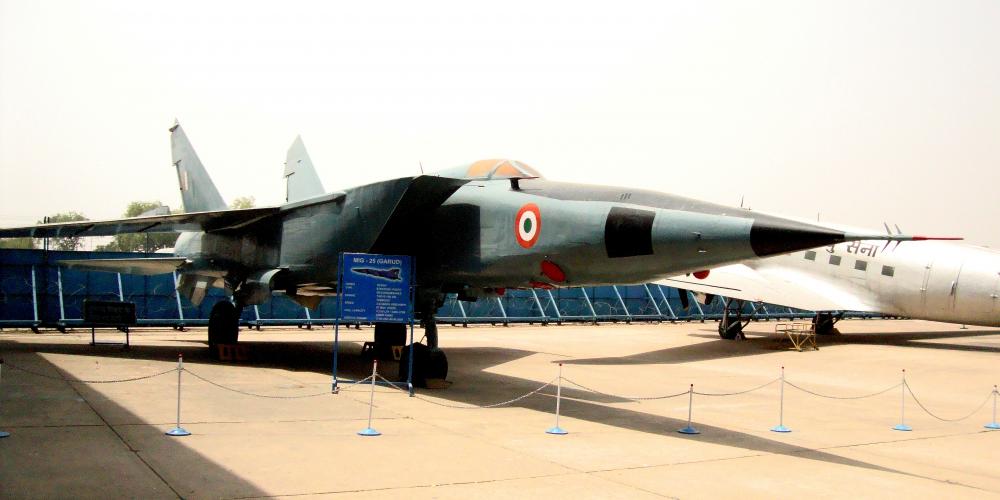|
|
MiG
Russian Aircraft Corporation MiG, or RSK MiG, is a Russian aerospace joint stock company. Formerly Mikoyan-and-Gurevich Design Bureau, then simply Mikoyan, is a military aircraft design bureau, primarily designing fighter aircraft. Its head office is in the Begovoy District, Northern Administrative Okrug, Moscow.
The former Soviet design bureau was established December 8, 1939 by Artem Mikoyan and Mikhail Gurevich as "Mikoyan and Gurevich", with the bureau prefix "MiG". In 1964 Gurevich retired and Mikoyan died in 1970. Upon Gurevich's death in 1976, Gurevich's name was dropped from the name of the bureau, although the bureau prefix remained "MiG". In 2006, the Russian government merged 100% of Mikoyan shares with Ilyushin, Irkut, Sukhoi, Tupolev and Yakovlev as a new company named United Aircraft Corporation.
MiG-21 | MiG-23 |
MiG-25
MiG-21
The Mikoyan-Gurevich MiG-21 (NATO reporting name: Fishbed) is a supersonic jet fighter and interceptor aircraft, designed by the Mikoyan-Gurevich Design Bureau in the Soviet Union. It was popularly nicknamed "balalaika", from the aircraft's planform-view resemblance to the Russian stringed musical instrument.
Development of what would become the MiG-21 began in the early 1950s, when Mikoyan OKB finished a preliminary design study for a prototype designated Ye-1 in 1954. This project was very quickly reworked when it was determined that the planned engine was underpowered; the redesign led to the second prototype, the Ye-2. Both these and other early prototypes featured swept wings. The first prototype with delta wings as found on production variants was the Ye-4. It made its maiden flight on 16 June 1955 and its first public appearance during the Soviet Aviation Day display at Moscow's Tushino airfield in July 1956. The MiG-21 was the first successful Soviet aircraft combining fighter and interceptor characteristics in a single aircraft. It was a lightweight fighter, achieving Mach 2 with a relatively low-powered afterburning turbojet, and is thus comparable to the American Lockheed F-104 Starfighter, the Northrop F-5 Freedom Fighter and the French Dassault Mirage III.
Approximately 60 countries over four continents have flown the MiG-21, and it still serves many nations six decades after its maiden flight. It made aviation records, became the most-produced supersonic jet aircraft in aviation history, the most-produced combat aircraft since the Korean War and the longest production run of a combat aircraft (now exceeded by both the McDonnell Douglas F-15 Eagle and the General Dynamics F-16 Fighting Falcon).
Hindustan Aeronautics Limited produced a total of 150 MiG-21Ms under licence from the Soviet Union between 1973 and 1981.

Mikoyan-Gurevich MiG-21PF Fishbed, registration 6124, built ????, serial number ????
General Museum Complex, Hue, Vietnam, 28 November 2014
MiG-21 | MiG-23 |
MiG-25
MiG-23
The Mikoyan-Gurevich MiG-23 (NATO reporting name: Flogger) is a variable-geometry fighter aircraft. It is considered to belong to the Soviet third-generation jet fighter category, along with similarly aged Soviet fighters such as the MiG-25 "Foxbat". It was the first attempt by the Soviet Union to design look-down/shoot-down radar and one of the first to be armed with beyond visual range missiles. Production started in 1970 and reached large numbers with over 5,000 aircraft built. Today the MiG-23 remains in limited service with some export customers.
The MiG-23BN was ground attack aircraft the MiG-23MF air defence interceptor.

Mikoyan-Gurevich MiG-23MF, registration SK434, built ????, serial number 14010
Indian Air Force Museum, Delhi, India, 28 April 2018
MiG-21 | MiG-23 |
MiG-25
MiG-25
The Mikoyan-Gurevich MiG-25 (NATO reporting name: Foxbat) is a supersonic interceptor and reconnaissance aircraft that was among the fastest military aircraft to enter service. It is one of the few combat aircraft built primarily using stainless steel. It was the last plane designed by Mikhail Gurevich before his retirement.
The first prototype flew in 1964, and the aircraft entered service in 1970. It has an operational top speed of Mach 2.83 (Mach 3.2 is possible but at risk of significant damage to the engines), and features a powerful radar and four air-to-air missiles. When first seen in reconnaissance photography, the large wing suggested an enormous and highly maneuverable fighter, at a time when U.S. design theories were also evolving towards higher maneuverability due to combat performance in the Vietnam War. The appearance of the MiG-25 sparked serious concern in the West and prompted dramatic increases in performance for the McDonnell Douglas F-15 Eagle then under development in the late 1960s. The capabilities of the MiG-25 were better understood in 1976 when Soviet pilot Viktor Belenko defected in a MiG-25 to the United States via Japan. It turned out that the aircraft's weight necessitated its large wings.
Production of the MiG-25 series ended in 1984 after completion of 1,190 aircraft. A symbol of the Cold War, the MiG-25 flew with Soviet allies and former Soviet republics, remaining in limited service in several export customers.

Mikoyan-Gurevich MiG-25R Garuda, registration KP355, built ????, serial number ????
Indian Air Force Museum, Delhi, India, 28 April 2018
MiG-21 | MiG-23 |
MiG-25
|


